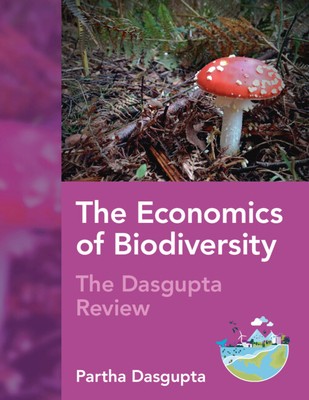
- We will send in 10–14 business days.
- Author: Partha Dasgupta
- Publisher: Cambridge University Press
- ISBN-10: 1009494309
- ISBN-13: 9781009494304
- Format: 21.6 x 27.2 x 3.1 cm, minkšti viršeliai
- Language: English
- SAVE -10% with code: EXTRA
Reviews
Description
We are part of Nature, not separate from it. We rely on Nature to provide us with food, water and shelter; regulate our climate and disease; maintain nutrient cycles and oxygen production; and provide us with spiritual fulfilment and opportunities for recreation and recuperation, which can enhance our health and well-being. Nature's constituents such as ecosystems and the biodiversity that are embodied in them are therefore assets. Yet Nature is more than an economic good: many recognise its intrinsic worth and argue that it has moral worth too. This landmark report explains the current state of play in relation to biodiversity loss and outlines a sustainable path to deal with this problem, one that will require us to change how we think, act and measure success. The report was originally commissioned and published by HM Treasury. This title is also available as Open Access on Cambridge Core.
EXTRA 10 % discount with code: EXTRA
The promotion ends in 22d.17:05:00
The discount code is valid when purchasing from 10 €. Discounts do not stack.
- Author: Partha Dasgupta
- Publisher: Cambridge University Press
- ISBN-10: 1009494309
- ISBN-13: 9781009494304
- Format: 21.6 x 27.2 x 3.1 cm, minkšti viršeliai
- Language: English English
We are part of Nature, not separate from it. We rely on Nature to provide us with food, water and shelter; regulate our climate and disease; maintain nutrient cycles and oxygen production; and provide us with spiritual fulfilment and opportunities for recreation and recuperation, which can enhance our health and well-being. Nature's constituents such as ecosystems and the biodiversity that are embodied in them are therefore assets. Yet Nature is more than an economic good: many recognise its intrinsic worth and argue that it has moral worth too. This landmark report explains the current state of play in relation to biodiversity loss and outlines a sustainable path to deal with this problem, one that will require us to change how we think, act and measure success. The report was originally commissioned and published by HM Treasury. This title is also available as Open Access on Cambridge Core.


Reviews